FELLOWSHIPS
Fellowships in Health Economics Research
Our fellowships program fosters a pipeline of passionate and energetic new researchers who are entering the field at the dissertation and postdoctoral stages. In addition to advancing their work, these fellowships provide a stepping stone for early-career scholars to position themselves to strengthen their work and pursue their career goals.
The fellowships program offers supplemental funding to pre- and post-doctoral students, as well as early career scholars, to conduct health economics research and encourage original inquiry that will advance our understanding of health and health care markets and their relationship to the overall economy. In addition to mentorship from Casey B. Mulligan and Tomas J. Philipson, each fellow will have the opportunity to work with a large network of other fellows and economics scholars at the University of Chicago.
Eligibility
Applications from current Ph.D. students and researchers at institutions both within and outside the US are welcome.
Fellowships
The program provides dissertation fellowships to Ph.D. students. Fellows receive part of the funding upon notification of the award, and the remaining balance is awarded upon receipt of dissertation.
Fellows are required to write a dissertation on the economics of health care under Professors Mulligan and Philipson and participate at the annual conference at the University of Chicago, where they will present and discuss their work.
Application Requirements
The application deadline for 2023-2024 has now passed; applications are no longer being accepted.
The application deadline is December 31, 2023. Submissions should be no longer than five pages and include a description of the research to be conducted while in the program. Please apply using the following link.
Should you encounter any issues, please email ecchc@uchicago.edu.
Support our Fellowships
Interested in helping to develop tomorrow’s health economists and research leaders through our Fellowship Program?
Click “Make a Gift” and designate that you would like your gift to go toward our Fellowships in the “Special Instructions” section.
Fellowship Award Recipient 2024-2025
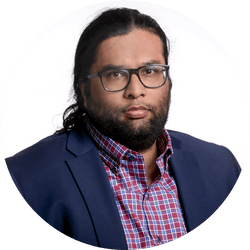
Moiz Bhai, Ph.D.
Fellowship Award Recipient 2024-2025
Moiz Bhai, Ph.D. is a Fellow at The Initiative on Enabling Choice and Competition at the University of Chicago Kenneth C. Griffin Department of Economics. He is an Associate Professor of Economics at University of Arkansas at Little Rock and Associate Professor of Health Policy and Management (by courtesy) at the University of Arkansas for Medical Sciences. His recent research focuses on the economic and policy implications of scope of practice occupational licensing reform, health insurance reform in Medicare and Medicare Advantage, and price regulation in healthcare.
Pre-Doctoral Fellowship Award Recipients 2023-2024

Vitor Melo
Pre-doctoral Fellowship Award Recipient 2023-2024
Vitor Melo is a PhD candidate in Economics at Clemson University. His research fields are health economics, public economics, and industrial organization. His current research uses causal inference methods to evaluate the economic effects of health and labor regulations.
Fellowship Funded Research Project: Certificate-of-Need Laws and Rural Healthcare Access: A Casual Analysis.
“Certificate-of-need (CON) laws require that healthcare providers receive approval from a state board before offering additional services in a given community. Proponents of CON laws claim that these laws are needed to prevent the oversupply of healthcare services in urban areas and to increase access in rural areas, which are predominantly underserved. Yet, the policy could lower rural access if used by incumbents to limit entry from competitors. I explore the repeal of these regulations in five U.S. states to offer the first estimate of the causal effects of CON laws on rural and urban healthcare access. I find that repealing CON laws causes a substantial increase in hospitals in both rural and urban areas. I also find that the repeal leads to fewer beds and smaller hospitals on average, suggesting an increase in entry and competition in both rural and urban areas.”
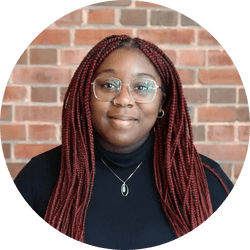
Joy Dada
Pre-doctoral Fellowship Award Recipient 2023-2024
Joy Dada is a Predoctoral Researcher at the Development Innovation Lab at the University of Chicago. Her research focuses on healthcare markets and social welfare programs, with an emphasis on early childhood development and maternal wellbeing in low-income settings. She holds degrees in Mathematics and Economics from the University of Chicago.
Fellowship Funded Research Project: The Impact of the Nurse Licensure Compact on Labor Mobility Before and During the COVID-19 Pandemic.
“In the wake of the COVID-19 pandemic, 50 states introduced emergency licensing reforms for healthcare professionals, liberalizing occupational licensing requirements to permit the freer movement of nurses across the country. Prior to the pandemic, the Nurse Licensure Compact (NLC) was implemented by 32 states allowing nurses to work across all its members under a single license. Similarly to pandemic-era licensing policies, the NLC was designed to increase labor market flexibility by reducing licensure related barriers to interstate mobility. Using monthly-level data from over 200,000 nurses, the pre-pandemic probability of interstate migration increased by 0.05% (95% CI 0.00-0.10) once a nurse has worked in a NLC state, whilst the pandemic-era estimate was insignificant. During the pandemic, neither liberal policy reforms nor increasing labor demand, proxied by COVID-19 cases and deaths, affected interstate mobility to states with acute need. Exploiting the NLC’s staggered state-level adoption, an event study design finds no effect of the NLC on nurse labor flows. These results show that the NLC has some influence on individual mobility decisions but does not induce a large enough reduction in the cost of interstate practice to create aggregate labor supply effects. These results also suggest that licensure costs and labor demand became less important components of migration during the pandemic.”

Honglin Li
Pre-doctoral Fellowship Award Recipient 2023-2024
Honglin Li is a PhD candidate in Risk Management and Insurance, at University of Wisconsin–Madison. His research interests are in understanding the functioning of insurance markets and specifically how they interact with health.
“This paper studies the impact of professional assistance on plan selection in Covered California, the California health insurance marketplace under the Affordable Care Act. Using detailed household level enrollment data from 2014 to 2017, we analyze how receiving assistance affects consumers’ choices, particularly in avoiding dominated/suboptimal health plans. Our analysis address the endogeneity of receiving assistance by using agent and navigator densities in the consumer’s location as instruments. The findings suggest that professional assistance significantly reduces the likelihood of consumers choosing dominated/suboptimal plans, with agents generally guiding consumers to better choices compared to navigators.”
Previous Fellowship Award Recipients

Anran Li | Recipient 2022-2023
Ph.D. Candidate in Economics, Northwestern University
Pre-Doctoral Fellowship funded research project:
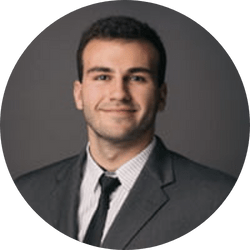
Vitor Melo | Recipient 2021-2022
Ph.D. Candidate in Economics, Clemson University
Pre-Doctoral Fellowship funded research project:
“Understanding Nonprofit and Government Ownership: Evidence from Nursing Homes in the COVID-19 Pandemic”*
(*Forthcoming in the Journal of Law and Economics)
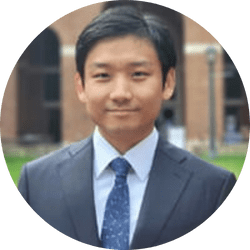
Pyoungsik Kim | Recipient 2021-2022
Ph.D., University of North Carolina at Chapel Hill
Pre-Doctoral Fellowship funded research project:
“Labor Market Search, Illness, and the Value of Employer-Sponsored Health Insurance”
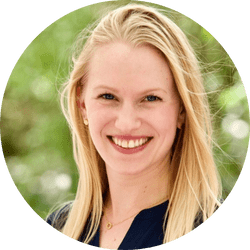
Molly Schnell | Recipient 2017-2018
Ph.D., Princeton University
Pre-Doctoral Fellowship funded research project:
Physician Behavior in the Presence of a Secondary Market: The Case of Prescription Opioids

Priya Shanmugam | Recipient 2017-2018
Ph.D., Harvard University
Pre-Doctoral Fellowship funded research project:
“Essays on Clinical Decision-Making”

Anh Nguyen | Recipient 2017-2018
Ph.D., Columbia University
Pre-Doctoral Fellowship funded research project:

Mariano Irace | Recipient 2017-2018
Ph.D., Northwestern University
Pre-Doctoral Fellowship funded research project:
“Patient Loyalty in Hospital Choice: Evidence from New York”

Coleman Drake| Recipient 2017-2018
Ph.D., University of Minnesota
Pre-Doctoral Fellowship funded research project:

Vilsa Curto | Recipient 2017-2018
Ph.D., Stanford University
Post-Doctoral Fellowship funded research project:
“Pricing Regulations in Individual Health Insurance: Evidence from Medigap”

Sunita Desai | Recipient 2017-2018
Ph.D., University of Pennsylvania
Post-Doctoral Fellowship funded research project:

Joshua Gottlieb | Recipient 2017-2018
Ph.D., Harvard University
Post-Doctoral Fellowship funded research project:
“The Economics of Administrative Costs in Health Care”
